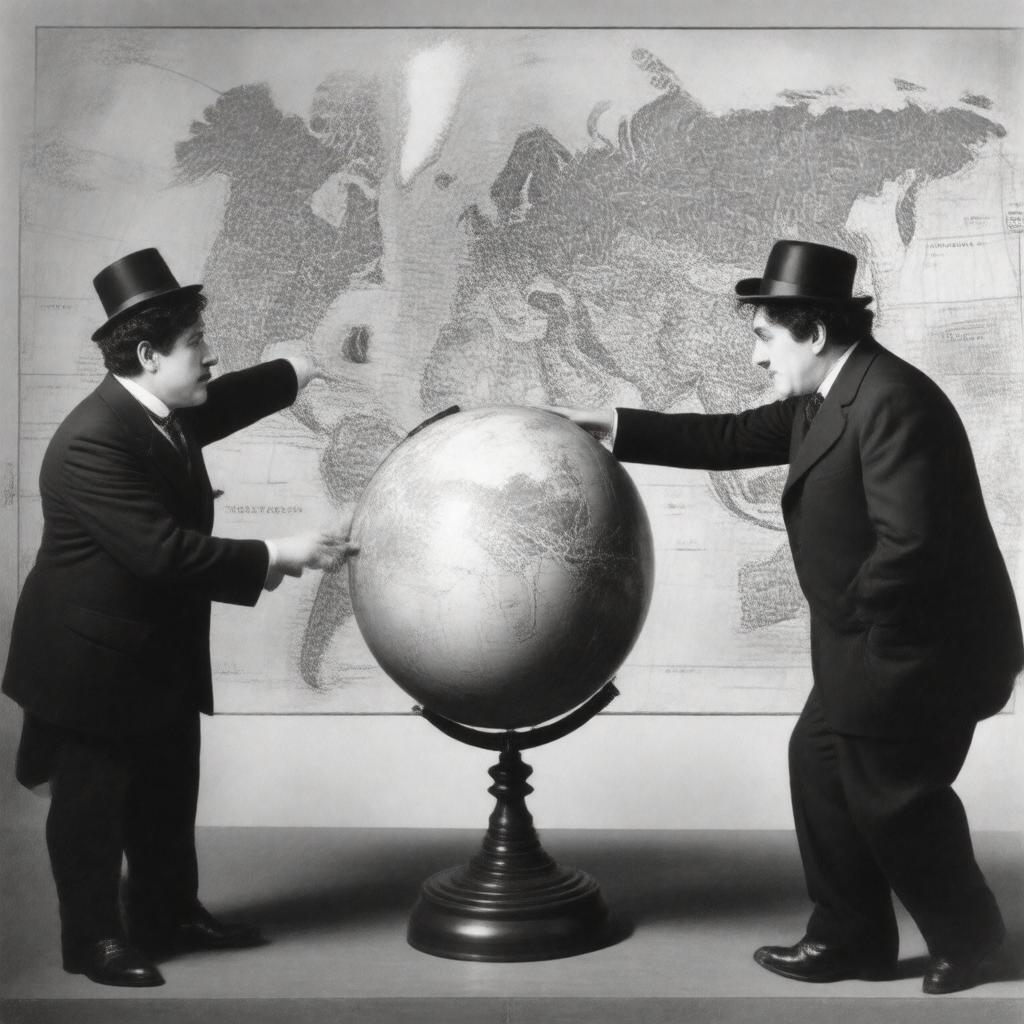Prompt
"Create an image of a satirical scene from a black-and-white film set during World War II, featuring Charlie Chaplin as a dictator-like character, Adenoid Hynkel, and as a Jewish Barber, with a globe and a backdrop of a fictional European country, blending comedy and political satire, reminiscent of the film's notable globe dance scene."

